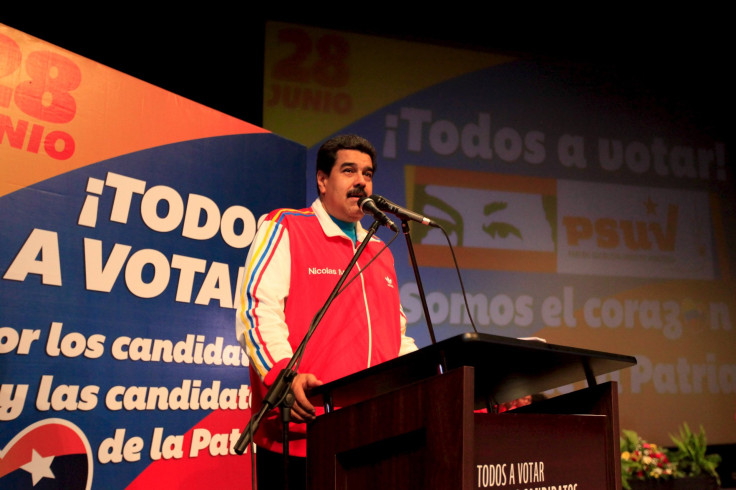Venezuela Begins Countdown To Parliamentary Elections

Venezuela’s electoral campaign season is officially underway, after the government made a long-awaited announcement on the date of high-stakes parliamentary elections. The vote, now set for Dec. 6, will present Venezuela’s political opposition with its best chance yet to challenge or even attempt to vote out President Nicolás Maduro.
Opposition groups have been anticipating this year’s elections for months, especially as support for Maduro and his policies have fallen drastically in the course of his presidency. Polling shows the opposition would win a majority of seats in the December vote. If that happens, it would be able to challenge Maduro directly from a position of power in the government for the first time since late President Hugo Chávez assumed office.
Some members of the opposition have supported the idea of trying to introduce a recall referendum against Maduro in 2016 if they secure a majority in the legislature. A survey by polling firm Datanalisis in December showed that 71.1 percent of Venezuelans believed Maduro would be removed by such a referendum. If the opposition gets a two-thirds supermajority, which analysts see as unlikely, it would provide a shield against any decree powers Maduro might try to hang on to into the second half of his presidency.
Maduro launched into campaign mode after the electoral commission’s announcement Monday evening, warning the opposition could curtail social services if it won a majority in the legislature. “If the National Assembly falls into the hands of the [opposition coalition Democratic United Roundtable], there would be chaos because our people would not surrender,” he said in a televised statement Monday. “I would be the first to throw myself in the streets along with the people.”
Public support for the president has fallen dramatically since he first came into office in 2013 and now hovers near 25 percent, according to recent surveys. A deepening economic crisis, exacerbated by last year’s drop in global oil prices, has eroded goodwill toward Maduro’s administration, putting the odds in the opposition’s favor for the first time in years.
Setting the election date was one demand of political prisoner Leopoldo López, who is currently on the fourth week of a hunger strike in protest against Maduro’s administration. Opposition members accused the government of intentionally holding back on an election date announcement, saying Maduro’s administration feared losing the vote. But the electoral commission denied Monday that the election date announcement was the result of public pressure. About 70 supporters have joined Lopez’s hunger strike since he began it a month ago. López hasn’t responded yet to Monday’s announcement, though his father told Colombia’s Radio FM he would likely suspend the strike soon.
© Copyright IBTimes 2024. All rights reserved.






















